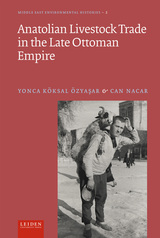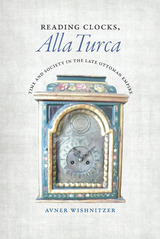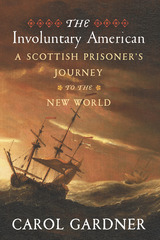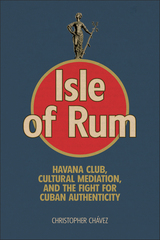2 books about Late Ottoman Empire

Anatolian Livestock Trade in the Late Ottoman Empire
Yonca Köksal Özyaşar
Leiden University Press, 2024
This book analyzes the expansion of the Anatolian livestock trade, focusing on sheep and cattle, during the nineteenth and early twentieth centuries— a period marked by significant changes in state policies, society and environment. It examines the impact of these changes on both human and non-human actors, maps trade routes and networks, and explores their transformations over time, thereby contributing to the literature on Ottoman environmental and socioeconomic history.
The book identifies three regions —central, northeastern, and northwestern Anatolia— and four Eastern Mediterranean ports (İzmir, İskenderun, Mersin, and Antalya) as major centers of livestock trade. It examines a combination of environmental, economic, social, and political dynamics that shaped the emergence of these regions as primary suppliers of sheep to Istanbul and the ports as gateways for livestock exports.
By highlighting diverse ecosystems and socioeconomic dynamics, and utilizing a variety of primary sources including Ottoman and British state documents, newspapers, memoirs, and travel accounts, the book aims to address several key questions: How did the ecosystems and socioeconomic dynamics of these regions and ports change in the nineteenth and early twentieth centuries? What were the repercussions of these changes on livestock production and trade? And how did they impact the organization of livestock and meat trade in Istanbul?
[more]

Reading Clocks, Alla Turca
Time and Society in the Late Ottoman Empire
Avner Wishnitzer
University of Chicago Press, 2015
Up until the end of the eighteenth century, the way Ottomans used their clocks conformed to the inner logic of their own temporal culture. However, this began to change rather dramatically during the nineteenth century, as the Ottoman Empire was increasingly assimilated into the European-dominated global economy and the project of modern state building began to gather momentum. In Reading Clocks, Alla Turca, Avner Wishnitzer unravels the complexity of Ottoman temporal culture and for the first time tells the story of its transformation. He explains that in their attempt to attain better surveillance capabilities and higher levels of regularity and efficiency, various organs of the reforming Ottoman state developed elaborate temporal constructs in which clocks played an increasingly important role. As the reform movement spread beyond the government apparatus, emerging groups of officers, bureaucrats, and urban professionals incorporated novel time-related ideas, values, and behaviors into their self-consciously “modern” outlook and lifestyle. Acculturated in the highly regimented environment of schools and barracks, they came to identify efficiency and temporal regularity with progress and the former temporal patterns with the old political order.
Drawing on a wealth of archival and literary sources, Wishnitzer’s original and highly important work presents the shifting culture of time as an arena in which Ottoman social groups competed for legitimacy and a medium through which the very concept of modernity was defined. Reading Clocks, Alla Turca breaks new ground in the study of the Middle East and presents us with a new understanding of the relationship between time and modernity.
Drawing on a wealth of archival and literary sources, Wishnitzer’s original and highly important work presents the shifting culture of time as an arena in which Ottoman social groups competed for legitimacy and a medium through which the very concept of modernity was defined. Reading Clocks, Alla Turca breaks new ground in the study of the Middle East and presents us with a new understanding of the relationship between time and modernity.
[more]
READERS
Browse our collection.
PUBLISHERS
See BiblioVault's publisher services.
STUDENT SERVICES
Files for college accessibility offices.
UChicago Accessibility Resources
home | accessibility | search | about | contact us
BiblioVault ® 2001 - 2024
The University of Chicago Press









